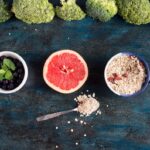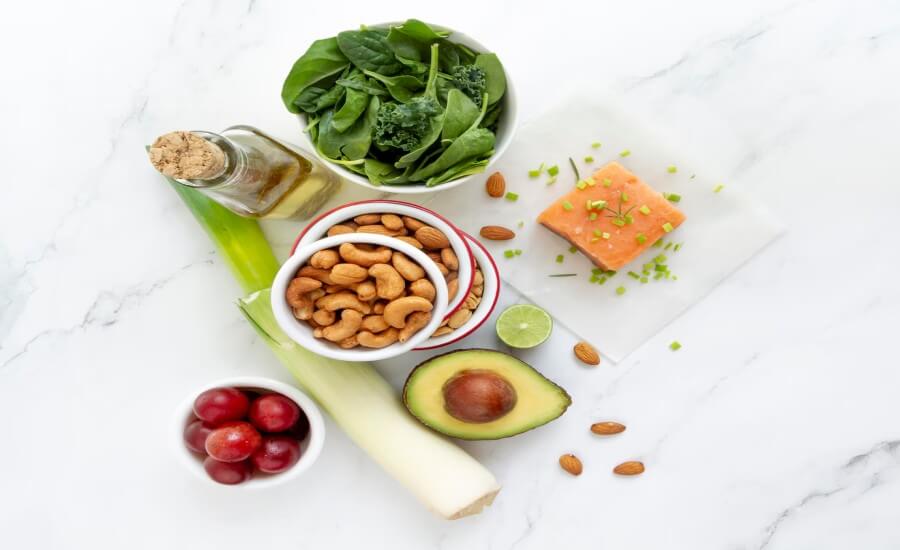The quest for optimal brain health is universal, impacting everything from daily focus to long-term cognitive function. Emerging research and diverse experiences suggest a powerful connection between what we eat and how we think. This analysis delves into the multifaceted relationship between a vegan diet and brain health, examining it through the distinct lenses of nutritional science, ethical considerations, environmental impact, and everyday practice. By integrating these viewpoints, we uncover a richer understanding of how plant-powered living can potentially unlock significant cognitive benefits, moving beyond simplistic dietary advice to explore the deeper implications for personal well-being, animal welfare, and planetary health.
Vegan Diet & Brain Health: Evidence‑Based Benefits & Tips
LENS 1: Nutritional Analysis – Fueling the Mind with Plants
From a nutritionist’s perspective, the potential for a vegan diet to support brain health lies in its abundance of certain beneficial compounds and the potential reduction of detrimental ones often found in animal-heavy diets. However, careful planning is paramount to ensure adequacy of all essential brain nutrients.
- The Power of Phytonutrients: Plant-based diets are inherently rich in antioxidants and anti-inflammatory compounds like flavonoids (found in berries, dark chocolate, citrus) and carotenoids (in leafy greens, sweet potatoes). These combat oxidative stress and inflammation, both implicated in cognitive decline and neurodegenerative diseases. Have you noticed a difference in your mental clarity after incorporating more colourful plants into your meals?
- Essential Fats – The Omega-3 Story: Alpha-linolenic acid (ALA), an essential omega-3 fatty acid, is abundant in flaxseeds, chia seeds, hemp seeds, and walnuts. While the body can convert ALA to EPA and DHA (crucial for brain structure and function), this conversion is often inefficient. Therefore, direct sources of DHA/EPA from microalgae oil supplements are strongly recommended for vegans to ensure optimal levels.
- Critical Micronutrients:
- Vitamin B12: Absolutely essential for nerve function and preventing cognitive impairment. B12 is not reliably found in plant foods, making fortified foods (nutritional yeast, plant milks, cereals) or direct supplementation non-negotiable for vegans.
- Iron: Plant-based iron (non-heme) is less bioavailable than heme iron from animals. Pairing iron-rich foods (lentils, spinach, tofu) with Vitamin C sources (citrus, peppers) enhances absorption. Iron deficiency can lead to fatigue and cognitive fog.
- Zinc: Important for neurotransmission. Found in legumes, seeds, nuts, and whole grains. Soaking, sprouting, or fermenting can improve absorption.
- Iodine: Crucial for thyroid function, which impacts brain development and metabolism. Sources include iodized salt or sea vegetables like kelp (use sparingly due to potentially high levels).
- Choline: Vital for neurotransmitter synthesis (acetylcholine) and cell membrane structure. Found in tofu, quinoa, Brussels sprouts, and peanuts, though meeting high requirements might necessitate focused intake or supplementation for some.
- Vitamin B12: Absolutely essential for nerve function and preventing cognitive impairment. B12 is not reliably found in plant foods, making fortified foods (nutritional yeast, plant milks, cereals) or direct supplementation non-negotiable for vegans.
Nutritional Deep Dive: Vegan Omega-3s (ALA vs. DHA/EPA)
While ALA from seeds and nuts is beneficial, the long-chain omega-3s, DHA and EPA, are the primary players in brain structure and function. DHA is a major component of neuronal membranes, vital for signalling. EPA has potent anti-inflammatory effects.
Relying solely on ALA conversion is risky due to genetic variability and dietary factors affecting conversion rates (estimated typically below 5-10% for EPA and <0.5-5% for DHA). Algal oil supplements provide a direct, sustainable, vegan source of pre-formed DHA and EPA, bypassing the conversion bottleneck.
Voice of Experience (Registered Dietitian): “A well-planned vegan diet can absolutely support excellent brain health throughout life. The key is awareness – knowing which nutrients need extra attention (like B12 and DHA) and incorporating reliable sources consistently. It’s not just about avoiding certain foods, but actively including nutrient-dense plant foods.” – Dr. Evelyn Reed, RDN
LENS 2: Ethical Framework – Compassion and Cognition
For ethical advocates, the link between veganism and brain health extends beyond mere nutrition. It encompasses the psychological and emotional dimensions of aligning one’s actions with deeply held values of compassion and non-violence.
- Reducing Cognitive Dissonance: Consuming animals while simultaneously holding beliefs about animal sentience or opposing unnecessary suffering can create internal conflict (cognitive dissonance). Adopting a vegan lifestyle resolves this dissonance for many, potentially leading to greater peace of mind and reduced psychological stress, which indirectly benefits cognitive function.
- The Empathy Connection: Cultivating empathy towards animals may foster broader pro-social behaviours and emotional intelligence. While not a direct biochemical pathway, a mindset rooted in compassion might contribute to overall mental well-being, creating a supportive internal environment for cognitive processes. Does aligning your diet with your ethics bring a sense of mental clarity or ease?
- Challenging Necessity: Ethical veganism fundamentally questions the presumed necessity of using animals for food, particularly when nutrient needs can be met through plant-based sources and supplementation. This challenges societal norms and encourages critical thinking about dietary choices and their far-reaching consequences.
Hidden Benefits: The Psychological Ease
Beyond avoiding specific nutrients in animal products, some vegans report a psychological “lightness” or reduced burden associated with not participating in systems they deem harmful. This subjective experience, while hard to quantify, can contribute positively to overall mental state and potentially enhance focus by removing a layer of ethical unease.
Voice of Experience (Animal Rights Advocate): “Living vegan isn’t just about what’s on my plate; it’s about living in alignment with my core belief that all sentient beings deserve respect. That consistency brings a profound sense of integrity and mental peace that, for me, feels foundational to clear thinking.” – Alex Chen, Activist
Critical Reassessment: Health Halos and Ethical Blind Spots
While focusing on plant-based benefits, it’s crucial to avoid creating a “health halo” around all vegan foods. Highly processed vegan junk food offers minimal brain benefits. Conversely, ethical motivations shouldn’t create blind spots regarding essential nutritional planning (like B12/DHA needs).
LENS 3: Environmental Scientist’s Analysis – Planetary Health, Personal Health
Environmental scientists view the vegan diet and brain health connection through the lens of sustainability and reduced exposure to environmental contaminants often concentrated in animal agriculture.
- Lowering Environmental Toxins: Animal agriculture can concentrate environmental pollutants like heavy metals (e.g., mercury in certain fish) and persistent organic pollutants (POPs) higher up the food chain. By consuming lower on the food chain, vegans may reduce their exposure to these neurotoxic substances.
- Resource Efficiency & Climate Impact: Plant-based diets generally require significantly less land, water, and energy, and produce far fewer greenhouse gas emissions compared to animal-based diets. Protecting environmental stability contributes to overall public health, including factors that can influence neurological well-being (e.g., air quality, stable climate). How does considering the environmental impact of your food choices affect your perspective on health?
- Sustainable Food Systems: A societal shift towards plant-based eating supports the development of more sustainable and resilient food systems, crucial for long-term global health and resource availability, which indirectly underpins individual health opportunities.
Market Transformation Map Suggestion: A visual timeline showing the growth curve of the plant-based food industry (specifically supplements like algal oil, fortified foods, and brain-focused snacks) alongside data on reduced environmental metrics per capita for plant-based eaters.
Voice of Experience (Environmental Researcher): “The link is clear: industrial animal agriculture is a major driver of environmental degradation – deforestation, water pollution, climate change. Choosing plant-based is one of the most impactful individual actions for planetary health, which is inextricably linked to human health, including cognitive function via reduced toxin exposure and a healthier ecosystem.” – Dr. Lena Hanson, Climate Scientist
LENS 4: Everyday Practitioner’s Experience – Living the Vegan Brain Boost
For the everyday practitioner, adopting a vegan diet for brain health involves navigating practicalities, social dynamics, and personal experiences of change.
- Navigating the Learning Curve: Transitioning involves learning new recipes, understanding nutrient sources (especially B12, Omega-3s, Iron), reading labels for fortification, and potentially finding suitable supplements. Online communities, vegan cookbooks, and dietitian consultations are valuable resources.
- Social Scenarios: Eating out, attending social gatherings, and family meals can present challenges. Practitioners develop strategies like bringing dishes, researching menus ahead of time, or focusing on naturally vegan options.
- Reported Subjective Benefits: Many individuals report experiencing improved mental clarity, focus, and energy levels after switching to a well-planned vegan diet. While anecdotal, these consistent reports contribute to the perceived link between the diet and cognitive enhancement. What practical tips have helped you maintain a brain-healthy vegan diet?
- Dealing with Misinformation: Practitioners often encounter myths about vegan diets lacking essential nutrients or being inherently unhealthy. Relying on evidence-based sources and personal experience becomes key.
Daily Impact: A Brain-Focused Vegan Meal Idea
- Breakfast: Oatmeal cooked with fortified plant milk, topped with flaxseeds, walnuts, and berries. (Provides ALA, fiber, antioxidants, fortified B12/Vit D).
- Lunch: Large salad with spinach, lentils, roasted sweet potatoes, bell peppers (Vit C for iron absorption), pumpkin seeds (Zinc), and a tahini dressing. (Provides Iron, Zinc, Carotenoids, Fiber).
- Dinner: Tofu scramble with black salt (kala namak for eggy flavour), nutritional yeast (B12, protein), turmeric (anti-inflammatory), and broccoli (Choline). (Provides Protein, B12, Choline, Sulforaphane).
- Snack: Apple slices with peanut butter. (Fiber, Choline).
- Supplement: Algal oil DHA/EPA capsule, B12 supplement (dosage as per individual needs).
Voice of Experience (Long-term Vegan): “It took some effort initially, especially ensuring I got enough B12 and thinking about omega-3s. But the payoff – feeling sharper, more energetic, and knowing my choices align with my values and environmental concerns – makes it completely worthwhile. Meal prep is my best friend!” – Sarah Miller, Vegan for 8 years
Alternative Approaches: WFPB vs. Processed Vegan
Within veganism, approaches vary. A Whole-Food Plant-Based (WFPB) diet emphasizes unprocessed fruits, vegetables, grains, and legumes, maximizing nutrient density and brain benefits. Conversely, a diet high in processed vegan meats, cheeses, and snacks may be ethically vegan but lack significant cognitive advantages.
PERSPECTIVE INTERSECTION MATRIX
- Nutrition & Ethics: The ability to thrive nutritionally on a vegan diet (Lens 1) strengthens the ethical argument (Lens 2) by demonstrating animal products are not strictly necessary for health, including brain health. Ethical motivation drives adherence to careful nutritional planning.
- Nutrition & Environment: Choosing plant-based for environmental reasons (Lens 3) naturally increases intake of brain-protective phytonutrients (Lens 1) but requires conscious effort for specific nutrients like B12/DHA. Reduced exposure to environmental toxins (Lens 3) directly impacts neurological health (Lens 1).
- Ethics & Practice: Strong ethical convictions (Lens 2) often provide the motivation needed to overcome practical challenges (Lens 4) of maintaining a vegan lifestyle.
- Environment & Practice: Awareness of environmental impact (Lens 3) influences daily food choices and shopping habits (Lens 4), potentially leading individuals to seek out sustainable vegan brands.
- Practice & Nutrition: Real-world experience (Lens 4) informs practical application of nutritional knowledge (Lens 1), highlighting where challenges in obtaining certain nutrients lie and driving demand for fortified products or supplements.
MISCONCEPTION ANALYSIS
| Misconception | Reality |
| Vegan diets lack protein needed for brain function. | Plant-based foods (legumes, tofu, tempeh, nuts, seeds, quinoa) provide ample protein. Meeting needs is achievable with varied intake. |
| You can’t get enough Omega-3s (DHA/EPA) on a vegan diet. | While ALA conversion is inefficient, direct DHA/EPA is available from sustainable microalgae oil supplements. ALA sources (flax, chia, walnuts) are abundant. |
| Vegan diets are automatically deficient in B12. | Unsupplemented vegan diets are deficient. However, B12 is easily obtained reliably through fortified foods (plant milks, cereals, nutritional yeast) and/or supplements. This is a crucial step. |
| All vegan diets are healthy and good for the brain. | Highly processed vegan junk food lacks fiber, phytonutrients, and micronutrients. A well-planned, whole-food-focused vegan diet offers the most brain benefits. |
| Plant-based iron is too poorly absorbed. | Non-heme iron absorption is lower but can be significantly enhanced by pairing with Vitamin C sources and avoiding inhibitors (like tea/coffee) with meals. Adequacy is achievable. |
KEY TURNING POINTS
- Isolation & Synthesis of B12 (1948-1955): Understanding B12’s structure and function, and developing synthetic forms, made vegan diets nutritionally safer and more viable long-term.
- The China Study (Published 2005): Although debated, this large observational study significantly raised public awareness about potential links between animal protein and chronic diseases, boosting interest in plant-based eating for overall health.
- Development of Algal Oil DHA/EPA (Late 1990s/Early 2000s): Provided a direct, sustainable vegan source for crucial brain-healthy omega-3s, addressing a major nutritional concern.
- Research on MIND Diet (Mid-2010s): While not exclusively vegan, the MIND diet (combining Mediterranean and DASH) emphasizes plant foods (leafy greens, berries, nuts, olive oil, whole grains) and demonstrated significant benefits for cognitive health, highlighting the power of these food groups.
- Rise of Mainstream Veganism & Product Innovation (2010s-Present): Increased availability and variety of fortified foods, supplements, and appealing plant-based products made the diet more accessible and convenient, including options targeted for health benefits.
SYNTHESIS & RECOMMENDATIONS
Examining the vegan diet and brain health nexus through multiple lenses reveals a compelling, though complex, picture. Nutritionally, a well-planned vegan diet offers abundant brain-protective compounds (antioxidants, phytonutrients, ALA) while requiring conscious intake of critical nutrients like B12 and DHA/EPA (ideally via algal oil).
Ethically, it aligns actions with values of compassion, potentially reducing cognitive dissonance and enhancing psychological well-being. Environmentally, it significantly lowers ecological footprints and reduces exposure to certain neurotoxins. Practically, while requiring learning and adaptation, it is entirely feasible and potentially rewarding, with many reporting subjective cognitive benefits.
The potential for a vegan diet to support and even enhance brain health is significant, but success hinges on informed planning. It’s not merely about exclusion, but mindful inclusion of diverse, nutrient-dense plant foods and reliable supplementation where necessary.
Recommendations:
- Prioritize whole plant foods: fruits, vegetables (esp. leafy greens, berries), legumes, nuts, seeds, whole grains.
- Ensure reliable B12 intake: Use fortified foods and/or supplements daily/weekly as needed.
- Supplement with Algal Oil: Secure direct DHA/EPA for optimal brain structure and function.
- Focus on Iron, Zinc, Iodine, Choline: Include rich plant sources and use techniques to enhance absorption.
- Consult Professionals: Work with a vegan-savvy registered dietitian or healthcare provider for personalized guidance.
FURTHER AREAS OF EXPLORATION
- The Gut-Brain Axis: How Vegan Diets Influence Microbiome and Mental Health
- Neuroinflammation and Plant-Based Diets
- Vegan Diets and Specific Neurological Conditions (e.g., Alzheimer’s, Parkinson’s)
- The Role of Specific Phytonutrients (e.g., Curcumin, Resveratrol) in Neuroprotection
- Long-Term Cognitive Outcomes in Vegan vs. Omnivore Populations
- Vegan Nutrition for Brain Development (Pregnancy, Childhood)












